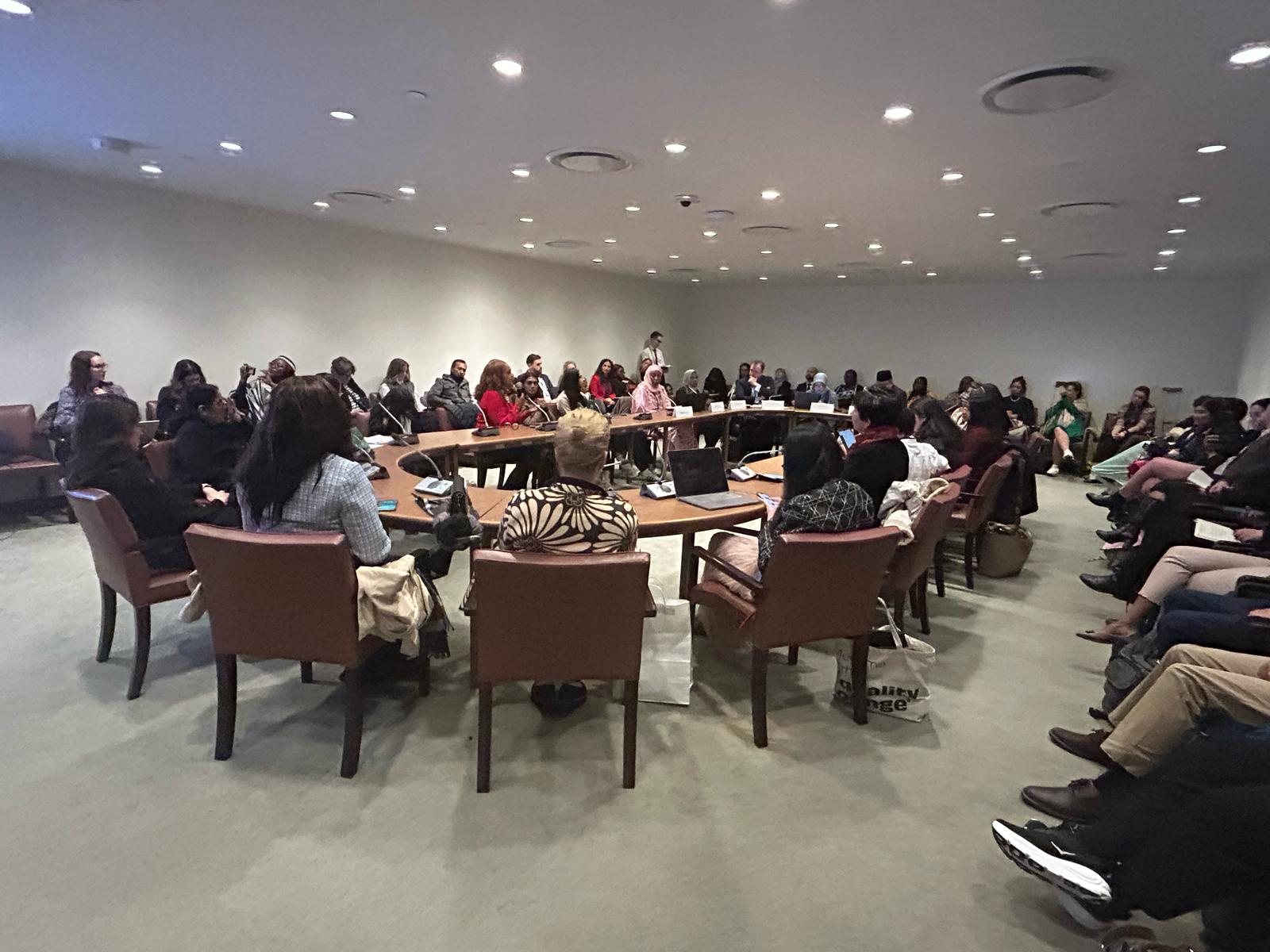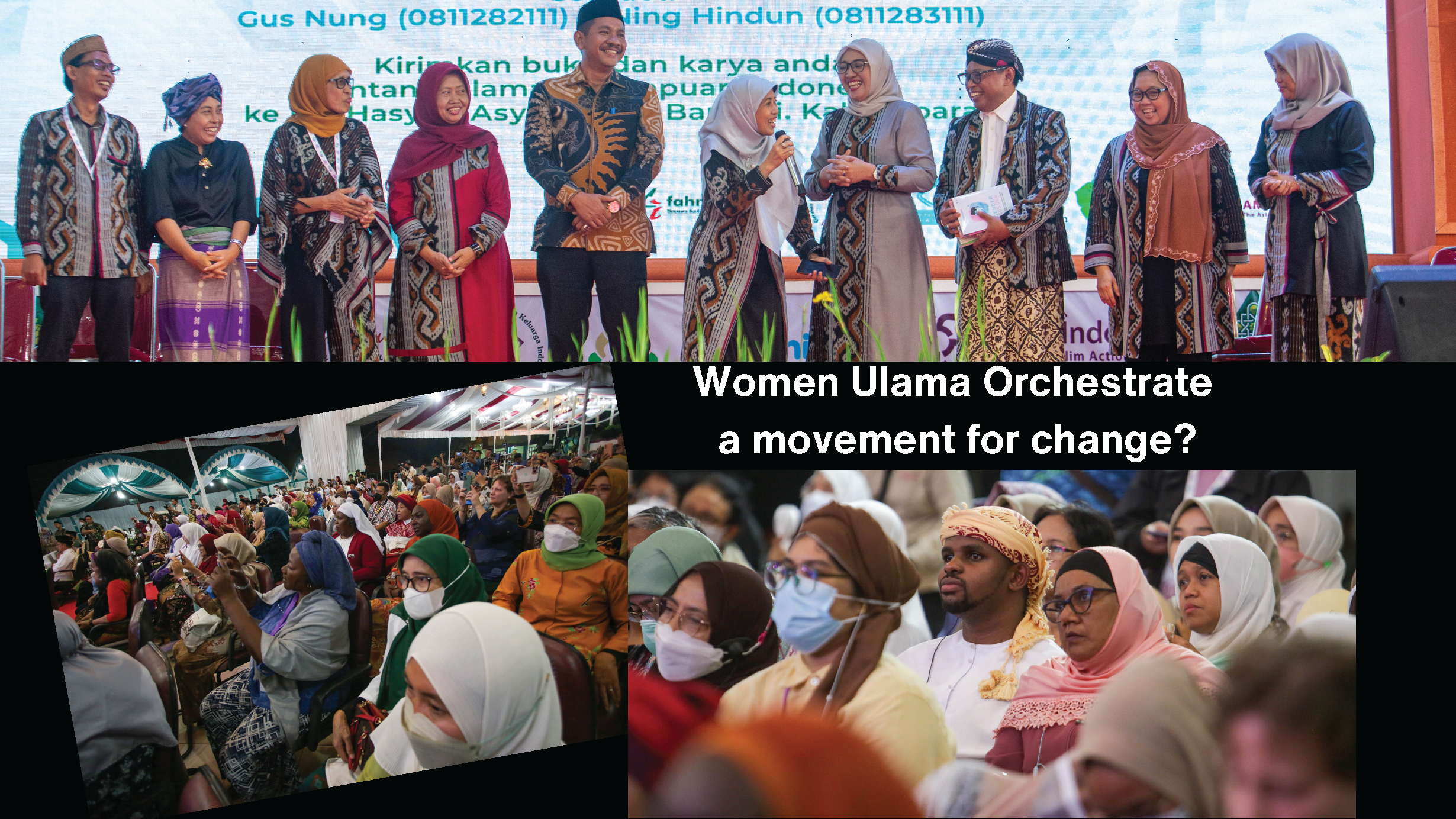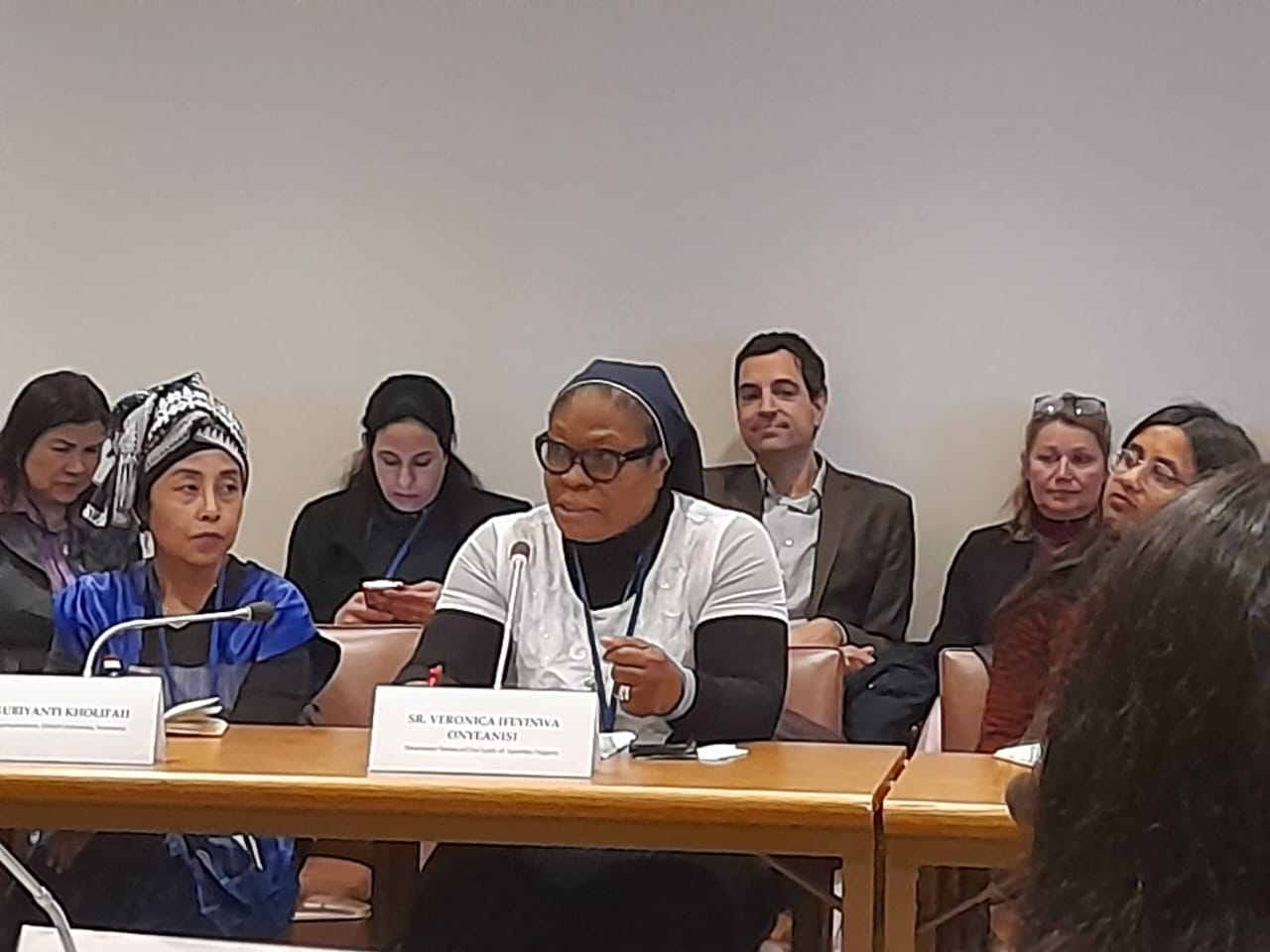From Faith to Action: Women Religious Leaders Transforming the Beijing Platform into Reality
CSW69 Beijing+30 Official Event | March 2025
The growing, global backlash to fundamental human rights can be seen, most notably, in the suppression of women’s rights and gender equality. To counter this backlash, religious leaders, who play fundamental roles in their community, are poised to support the advancement of women’s leadership and participation in public life. Women of faith, particularly at the grassroots level, have emerged as integral partners in advancing gender equality and women’s empowerment.

From Faith to Action: Women Religious Leaders Transforming the Beijing Platform into Reality, an panel official side event as part of the 69th Session of the Commission on the Status of Women. March 2025.
To address the intersection of the right to Freedom of Religion or Belief (FoRB) and the right to non-discrimination in the context of gender, women religious leaders must be more effectively engaged. During the 69th session of the Commission on the Status of Women (CSW) and thirtieth anniversary of the Beijing Platform for Action Declaration, the Indonesia delegation to the United Nations partnered with Joint Initiative for Strategic Religious Action (JISRA), a consortium consisting of partners the Network for Religious and Traditional Peacemakers, Mensen met een Missie, Tearfund, and the Faith for Action Network, to host an official side event highlighting the importance of grassroots faith leaders in advancing the implementation of the Beijing Platform for Action. The 90-minute dialogue brought together women faith leaders from Indonesia, Mali and Nigeria to share their experiences and contributions to advancing gender equality and sustainable development to demonstrate the transformative potential of engaging women faith leaders in social change.
Ambassador Hari Prabowo, the Permanent Representative Council of the Republic of Indonesia to the United Nations, opened the session by expressing Indonesia’s belief in the full, meaningful representation of women in all their diversity to translate the Beijing Platform for Action into local and national change. Ambassador Prabowo highlighted Indonesia’s history of religious tolerance, inclusivity and gender equality, advocating for increased support to women of faith as a way to advance local action to national and global change.
Bandana Rana, member of the Committee on the Elimination of Discrimination Against Women (CEDAW), remarked on her personal experiences growing up in Nepal, a religiously diverse country. She recounted the impact of religion on daily life, from dictating proper attire to shaping socio-cultural norms. The inherent patriarchy of religious institutions are reinforced in religious interpretation, further disenfranchising women of faith. Women faith leaders, she said, hold the key to simultaneously countering entrenched cultural and traditional norms, advancing religious freedom and promoting gender equality. CEDAW should serve as an advocacy tool for civil society, especially women faith leaders, to pressure local and national governments to uphold the rights and protections of women and girls.
Opening the panel discussion with four women faith leaders, Dr. Nur Rofiah from Indonesia began by emphasizing that women, not men, are owners of their spirituality and intellect. As a researcher on Quranic interpretation and founder of the cultural movement, Ngaji Keadilan Gender Islam (Study Group of The Gender Justice of Islam), Dr. Rofiah positioned the Quran as a system of moral foundation whose interpretation can serve to empower women. The basic principles of Islam, Dr. Rofiah explained, promotes gender equality and reflects a humane, just and peaceful worldview. The interpretation of the Quran, however, has been used to falsely advance patriarchal and harmful practices, such as gender-based violence and child marriage. She has connected these learnings to political advocacy, working within women faith coalitions to successfully advocate for the passage of laws that ban domestic violence, raise the minimum age for marriage and prohibit polygamy.
Dwi Rubyanti (Ruby) Kholifah, the Indonesian Director of the Asian Muslim Action Network (AMAN), continued the conversation by highlighting the first Ulama Fatwa, a revolutionary methodology connecting Islamic law to national and international laws promoting women’s rights. Kholifah centered these kinds of dialogues as an important tool to address concerns of the community and encourage political advocacy,
“Dialogue is a way to reclaim the agency of women of faith and center feminine approaches to peacebuilding.”

Dwi Rubyanti (Ruby) Kholifah, Director of the Asian Muslim Action Network (AMAN) highlights women Ulama orchestrating a movement for change.
Djeneba Toure, Member of the Youth Union of Mali, discussed the little decision-making power held by women in Mali. In this context, the majority of religious leaders are male, contributing to harmful stereotypes and stigmas that lead to gender-based violence. To counter these traditional patriarchal structures, Toure positioned women faith leaders as key to educating women on their rights and addressing community needs. Toure encouraged the relevant stakeholders to prioritize the engagement of women of faith to address gender-based violence and its triggers, such as climate disasters, food insecurity, poverty and conflict.
Sister Veronica Ifeyinwa Onyeanisi, Executive Director of the Women’s Interfaith Council (WIC) in Nigeria, concluded the panel by emphasizing the importance of interfaith approaches in peacebuilding. By training religious leaders in intra-faith settings and then bringing leaders into interfaith spaces, Sister Onyeanisi’s work promotes a reinterpretation of religion as a driver of peace, not a tool for division and conflict. Sister Onyeanisi described successful interfaith dialogues as spaces that are conducive to open and honest conversation, encouraging participants to enter spaces with humility and openness. She equated it to, “removing your shoes before entering a space,” allowing for a shared humanity built on similarities, not differences.

Panelists from right to left: Dwi Rubyanti (Ruby) Kholifah, Director of the Asian Muslim Action Network (AMAN); Sister Veronica Ifeyinwa Onyeanisi, Executive Director of the Women’s Interfaith Council (WIC). March 2025.
Rev. Dr. Uzoaku Juliana Williams, Assistant General Secretary of the LLP Christian Association of Nigeria, spoke about the Joint Initiative for Strategic Religious Action (JISRA) program and her experiences as the first woman in her leadership position. She emphasized the vital role that faith actors play in advancing gender equality and the importance of promoting best practices to combat discrimination and inequality. Discussing faith actors’ engagement at the grassroots level to challenge harmful norms, she stated, “many faith actors have successfully contextualized gender equality within religious traditions, making it more relatable and acceptable to their communities.” Rev. Williams concluded with a rousing call to question assumptions, listen to diverse perspectives, and critically challenge existing policies and practices.
Finally, through recorded remarks, Professor Asma Barlas, PhD, Professor Emerita of Politics at Ithaca College, spoke of the harmful interpretations of the Quran as a patriarchal text. Political and religious leaders, she said, selectively interpret religious texts to project sexism and justify the subordination of and violence against women. Dr. Barlas ended by encouraging new forms of religious education that center proper interpretations because, “We can read God’s word as both just and liberating.“
Concluding the event, Rick Van Der Woud, Director of Mensen met een Missie (MM), discussed ways to transform this discussion into action. He encouraged everyone in attendance,
“Not to speak about peace abstractly, but look at these women, recognize them, fund them and empower them to continue their work for the advancement of peace.”
Follow the Peacemakers Network on social
